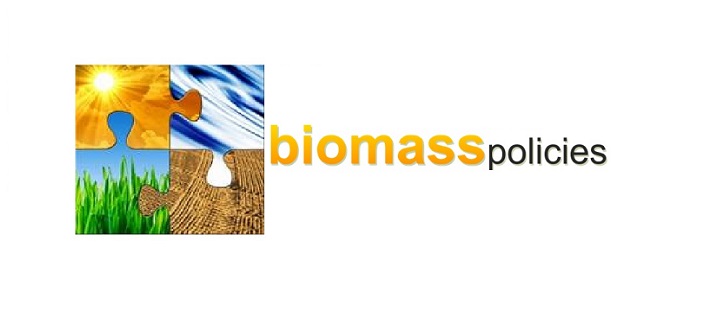The IDAE participated in the Biomass Policies project, within the framework of the European Commission’s Intelligent Energy Europe (IEE) programme.
The project’s objective was to define the most efficient actions to ensure optimal use of resources in Europe’s bioenergy production supply chains in the short (2020) and medium (2030) term. To this end, elements related to sustainability, efficiency and competitiveness were considered, to determine the mechanisms that allow these three characteristics to be favoured in the national and regional development of the sector.
The project lasted 36 months (April 2013 to March 2016). The main aspects on which it focused were:
Definition of the main value chains by region and member state and description of the different uses of biomass.
Development of an integrated scheme of actions to achieve the objectives established in the NREAPs for biofuels and for thermal and electrical uses of biomass. At the same time, to make optimal use of resources for other applications (food, livestock, manufacture of various materials) ensuring, in addition, the sustainability of processes.
Preparation of reports that allow member states to understand the most efficient bioenergy chains in technical and sustainability terms.
In addition to the IDAE, the following bodies also participated:
Energy Agencies: AEA (Austria), CRES (Greece), DENA (Germany), EIHP (Croatia), FNR (Germany), KAPE (Poland), NL Agency (The Netherlands), SIEA (Slovakia).
Sector Associations: AEBIOM (Europe).
Research Centres: ECN (The Netherlands), IINAS (Germany), Imperial College London (Great Britain), Stichting DLO – Alterra (The Netherlands), VITO (Belgium).
Other agents: Port of Rotterdam (The Netherlands)
Among the activities that have been carried out at national level, it is worth highlighting four meetings which have been held at the IDAE headquarters with the participation of representatives from the sector’s different fields.
First national Biomass Policies project workshop
This took place on 4 November 2013 and its objectives were:
To identify value chains that make best use of existing resources and achieve the objectives set out in the national plans.
To identify existing barriers to the optimal use of biomass.
To identify actions which could contribute to the elimination of the barriers detected and to the development of the value chains mentioned above.
Second national Biomass Policies project workshop
This was held on 30 October 2014 and discussed the following issues:
Current status of project tasks.
Pre-selected value chains for detailed analysis in the project (3 per country).
Preliminary data on biomass potential and costs.
Third national Biomass Policies project workshop.
This took place on 2 June 2015 and discussed the following issues:
Current status of project tasks (especially in the working groups WP2. Value Chains, WP3. Current Policy, WP4. Future Policy Formation and WP5. National Packages).
Value chains selected for detailed analysis in the project (potentials identified and SWOT analysis).
Next activities planned, with special attention to the participation of the sector’s agents in their implementation.
Initiation of a participatory process, and presentation of the proposed consultation to begin work on the drafting of the integrated regulatory framework.
Fourth national Biomass Policies project workshop
This took place on 8 March 2016 and the objective was to discuss the following topics:
Current status of project tasks (especially in the working groups WP3. Current Policy, WP4. Future Policy Formation and WP5. National Packages).
Results of the WP3 Benchmarking work (presentation of the report and summary of the main conclusions).
Preliminary integrated framework scheme developed in WP4.



